HighLights
- Cloud Certs = Foundation → AWS DevOps Engineer Pro, Azure DevOps Expert, Google Cloud DevOps Engineer are must-haves for mid/senior roles.
- Kubernetes = Core Skill → CKA, CKAD, and CKS prove real, hands-on expertise. Over 3,000 jobs explicitly ask for them.
- Terraform = IaC Standard → Terraform Associate (003) dominates; 15k+ U.S. job postings mention it.
- CI/CD Has Shifted → Jenkins is legacy; GitHub Actions & GitLab certifications are the new benchmarks.
- Linux = Bedrock → LFCS, RHCSA, RHCE remain evergreen. 10k+ jobs still require Linux fluency.
- Maturity Layer Matters → Security (CKS, AWS Security Specialty), Reliability (Google DevOps Engineer), and Cost (FOCP) now separate leaders from juniors.
- Observability = No Longer Optional → Grafana/Prometheus certifications validate modern monitoring and tracing.
- Certifications = Multipliers, Not Magic → They amplify hands-on skills and career progression; 81% of certified pros report better job opportunities.
Picture this: it’s spring 2025, and you’re sitting in an interview for a mid-to-senior DevOps engineer role. The hiring manager has already skimmed your résumé. They see “AWS experience,” “Kubernetes deployments,” “Terraform automation.” Then they lean back and ask the real question:
That single question captures the tension DevOps professionals face today. Anyone can list tools on LinkedIn. Anyone can set up a side project and call it “production-ready.” But when uptime, security, and scalability are on the line, employers want more than claims. They want proof.
This is where certifications step in - not as magic tickets to jobs, but as trust markers in a trust-deficient market. They are signals that you’ve gone beyond “dabbling” and committed yourself to learning at a level that’s been externally validated.
And the evidence is striking. According to the Pearson VUE 2025 Value of IT Certification Report, certifications aren’t just vanity items - they move careers:
- 82% of certified candidates said certification gave them the confidence to pursue new job opportunities.
- 63% reported receiving - or expecting - a job promotion as a direct result of getting certified.
- 32% saw tangible salary increases after certification
Source: Pearson VUE IT Certification Candidate Report 2025
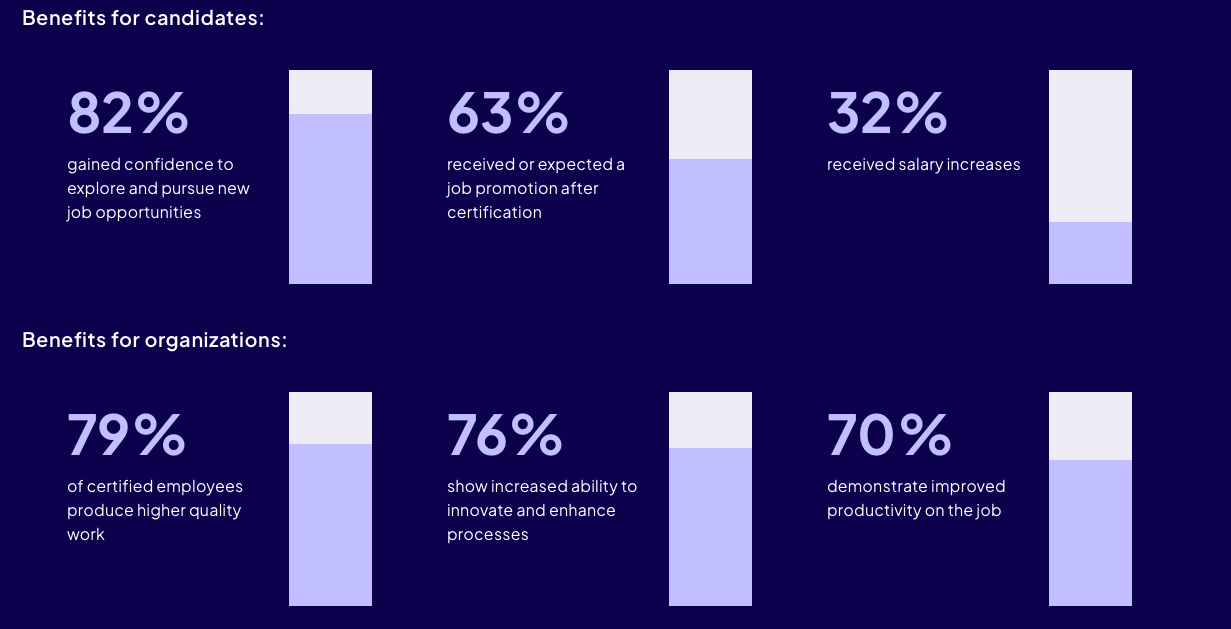
It’s not just candidates who benefit. Organizations see the impact too:
- 79% said certified employees produce higher-quality work.
- 76% observed more innovation and improved processes.
- 70% saw productivity gains from certified staff.
That combination - career acceleration for individuals, higher output for companies - is why certifications remain relevant in 2025. They’re not about memorizing commands or adding logos to your LinkedIn banner. They’re about building confidence, proving skill, and reducing risk in high-stakes environments.
So, while experience will always be king, certifications remain one of the most effective ways to signal credibility in today’s crowded DevOps job market.
To answer that, we need to step back and see how the certification landscape itself has evolved.
The Certification Market in 2025: Why It’s Different
o understand which certifications are worth your time in 2025, it helps to look back. The certification market has gone through waves of credibility over the last decade.
Back in the 2010s, IT certifications had a bit of a branding problem. Many were little more than multiple-choice tests - memorize a few commands, take a quick cram course, and you could call yourself “certified.” Employers quickly caught on. Some of these “paper certs” were so detached from real-world practice that they became punchlines. Engineers with strong hands-on experience often dismissed them as meaningless.
But something shifted in the early 2020s. The explosion of cloud-native technologies - containers, Kubernetes, serverless, Infrastructure as Code - demanded new ways to validate skills. It wasn’t enough to just know about these tools. Employers needed people who could actually apply them in production environments.
This led to a new era of certifications: practical, scenario-driven, and sometimes fully hands-on. The CNCF Kubernetes exams (CKA, CKAD, CKS) pioneered this model. Instead of asking you to recite YAML syntax, they dropped you into a live cluster and gave you real-world problems to solve under time pressure. Cloud vendors began moving in the same direction. Today, AWS Pro-level exams, Microsoft’s expert certifications, and Google’s Professional Cloud DevOps Engineer all emphasize applied judgment rather than rote recall.
The timing wasn’t accidental. Industry adoption of these technologies was accelerating in parallel. According to the CNCF Annual Survey 2024, 93% of organizations were running or evaluating Kubernetes in production. At the same time, cloud platforms were solidifying their dominance. As of Q2 2025, AWS held roughly 30% of global cloud market share, Microsoft Azure 20%, and Google Cloud 13%.
This is why certifications in DevOps today fall into a few clear categories that map directly to the ecosystem itself:
- Cloud certifications validate your foundation.
- Kubernetes certifications prove orchestration and security skills.
- Infrastructure as Code certifications confirm you can automate reproducibly.
- CI/CD certifications show you can deliver software continuously.
- Linux and security certifications demonstrate maturity at the systems and governance layers.
- Emerging areas like FinOps and observability certifications reflect the new demands of cost control and reliability.
But among these, some have kept pace with the times - while others are falling behind.
To see where to invest in 2025, let’s start with the most fundamental layer: cloud certifications.
Cloud Certifications: The Foundation Layer You Can’t Skip
If the 2020s taught us anything, it’s that cloud is the backbone of DevOps. Every conversation about automation, containers, or microservices eventually circles back to the same question: where is this running?
That’s why cloud certifications remain the base layer of DevOps career growth. Before Kubernetes, before Terraform, before CI/CD pipelines, you need to prove that you understand the infrastructure clouds are built on.
For beginners entering the field, associate-level certifications are still a strong starting point. The AWS Certified Solutions Architect - Associate, the Azure Administrator (AZ-104), and the Google Associate Cloud Engineer all provide foundational skills: IAM configuration, networking basics, virtual machines, storage, and cost management. These are essential building blocks if you’re stepping into DevOps from a developer or sysadmin background.
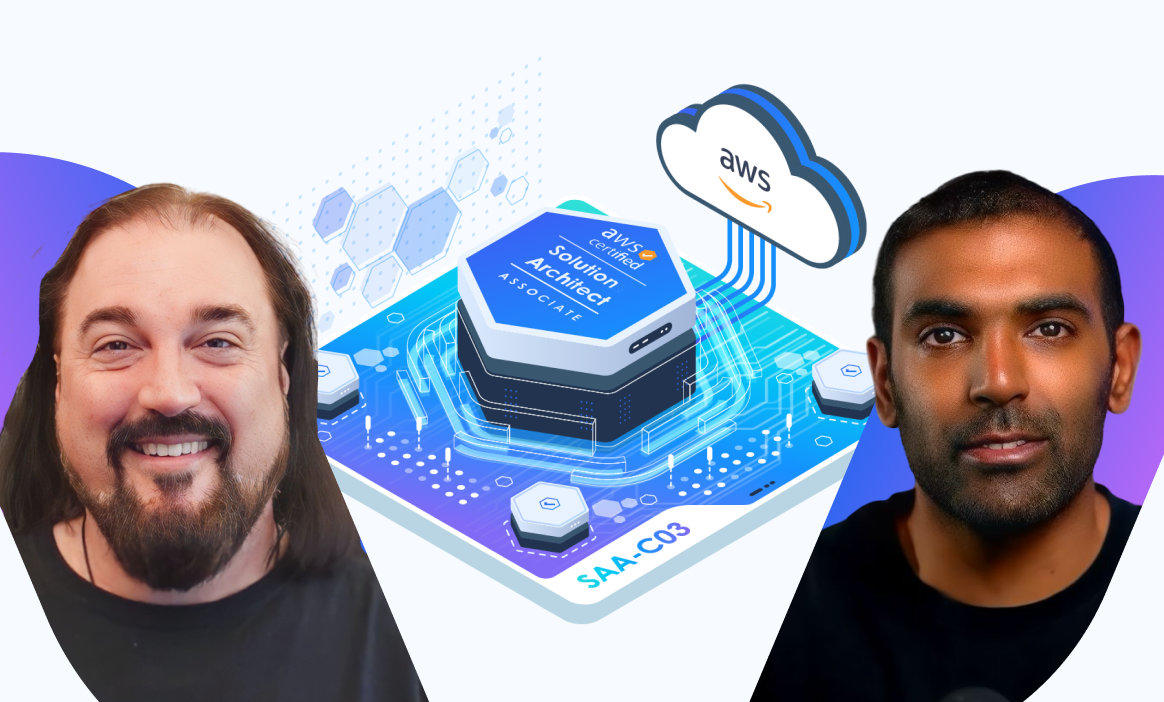

But here’s the reality of 2025: associate-level certifications have become table stakes. They’ll help you land your first role, but once you’re aiming at mid-level or senior DevOps engineer positions, recruiters rarely stop at “associate.” Hiring managers want proof that you can architect and automate at scale. That’s where professional and expert-level cloud certifications come in.
The AWS Certified DevOps Engineer - Professional is one of the most in-demand certifications for DevOps engineers in 2025. It covers CI/CD pipelines, observability, high availability, and automated scaling across AWS. In fact, a quick LinkedIn job search shows 6,000+ postings globally that explicitly mention AWS DevOps Engineer Professional. That’s unusually high visibility for a certification—proof of how closely employers tie it to real skill.
Microsoft has its counterpart in the Azure DevOps Engineer Expert (AZ-400), which goes beyond cloud infrastructure to include pipelines, code repos, and governance. If you’re targeting enterprises with heavy Microsoft footprints (banks, healthcare providers, large consultancies), AZ-400 is a differentiator.
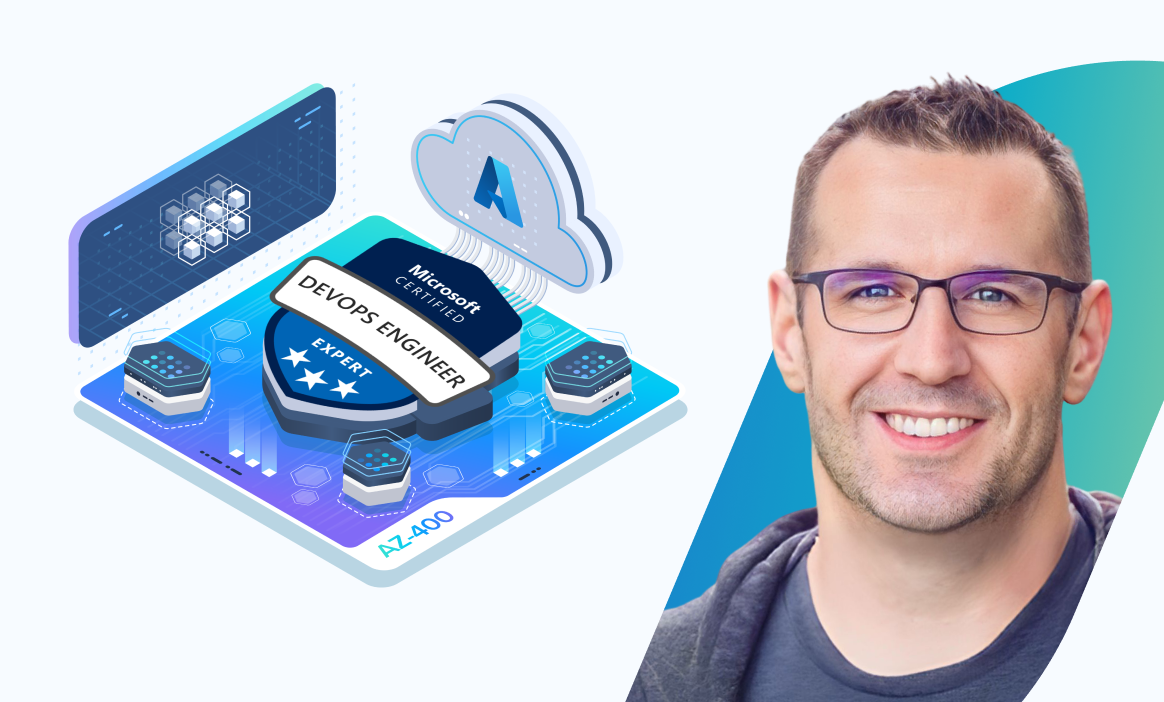
Google Cloud’s offering, the Professional Cloud DevOps Engineer, is particularly interesting because it blends DevOps with Site Reliability Engineering (SRE) principles. It doesn’t just test automation and CI/CD - it evaluates whether you can manage SLIs, SLOs, and error budgets, which is exactly where modern reliability practices meet DevOps culture.
The big picture? Cloud certifications are non-negotiable for DevOps engineers in 2025. Associates get your foot in the door. Professional/expert levels are the accelerators that move your résumé from the “maybe” pile to the interview shortlist. Without them, it’s increasingly hard to prove to employers that you can manage infrastructure at the scale modern companies demand.
And here’s the natural next step: once you’ve proven you can design and manage cloud resources, the next question employers ask is - can you orchestrate them? That takes us directly to Kubernetes certifications.
Kubernetes: The Practical Core of DevOps
Source: CNCF Survey 2024
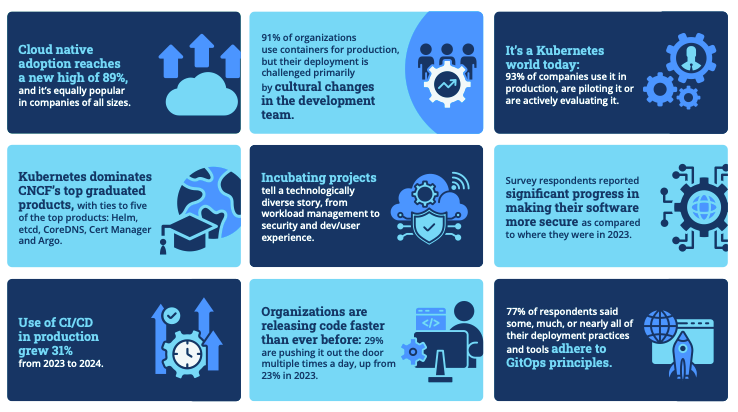
In 2025, that question isn’t theoretical. According to the CNCF Annual Survey 2024, 93% of organizations are running or evaluating Kubernetes in production. Kubernetes has moved beyond being a “trendy tool” and is now the default for container orchestration across industries - from fintechs deploying microservices to healthcare systems running secure workloads.
But here’s the problem for hiring managers: plenty of candidates list “Kubernetes” on their résumés, but how do you separate the ones who’ve just run kubectl get pods from those who can actually design, troubleshoot, and secure a production-grade cluster?This is where Kubernetes certifications from the Cloud Native Computing Foundation (CNCF) play a unique role. Unlike many traditional certs, these are performance-based exams. You’re dropped into a real Kubernetes cluster and asked to complete tasks under time pressure. If you pass, it’s proof that you can handle the same kinds of situations you’d face on the job.
Here’s the current certification ladder in 2025:
- Kubernetes and Cloud Native Associate (KCNA)
An entry-level, multiple-choice exam that introduces Kubernetes, containers, observability, and cloud-native tooling. It’s a solid on-ramp for beginners, but note that the curriculum will be updated on November 1, 2025.
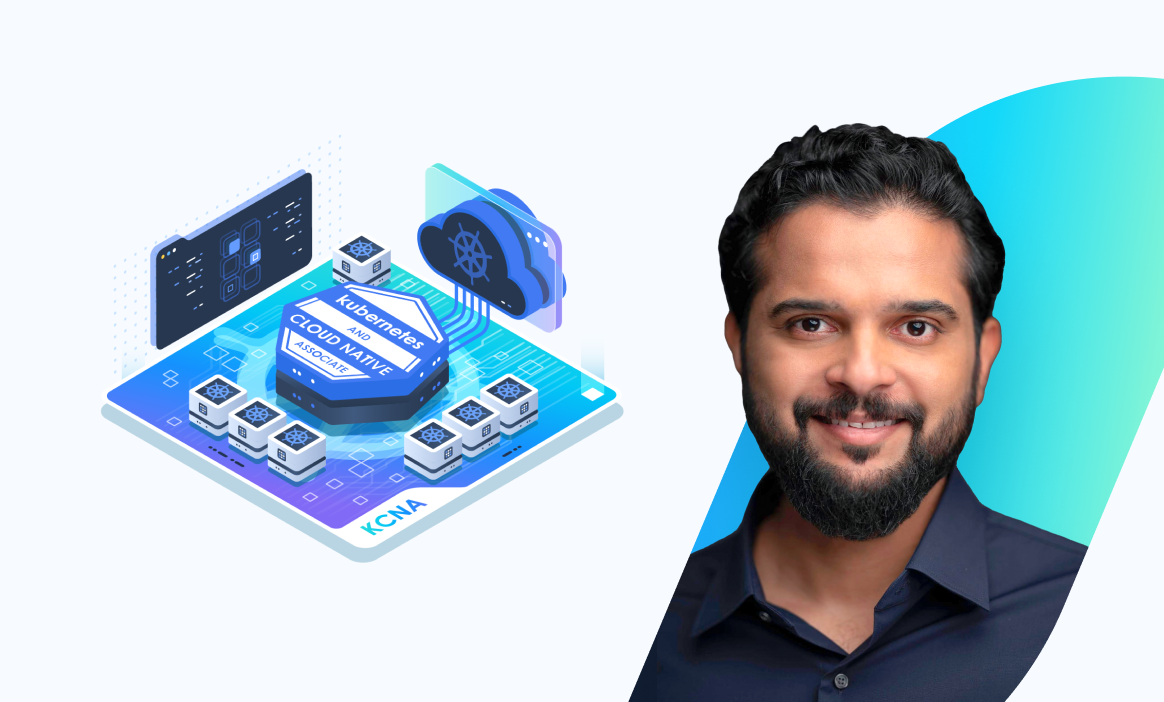
- Certified Kubernetes Administrator (CKA)
The gold standard for platform engineers. The exam is hands-on and, as of 2025, aligned to Kubernetes v1.33. It tests you on cluster setup, maintenance, networking, scheduling, security, and troubleshooting.
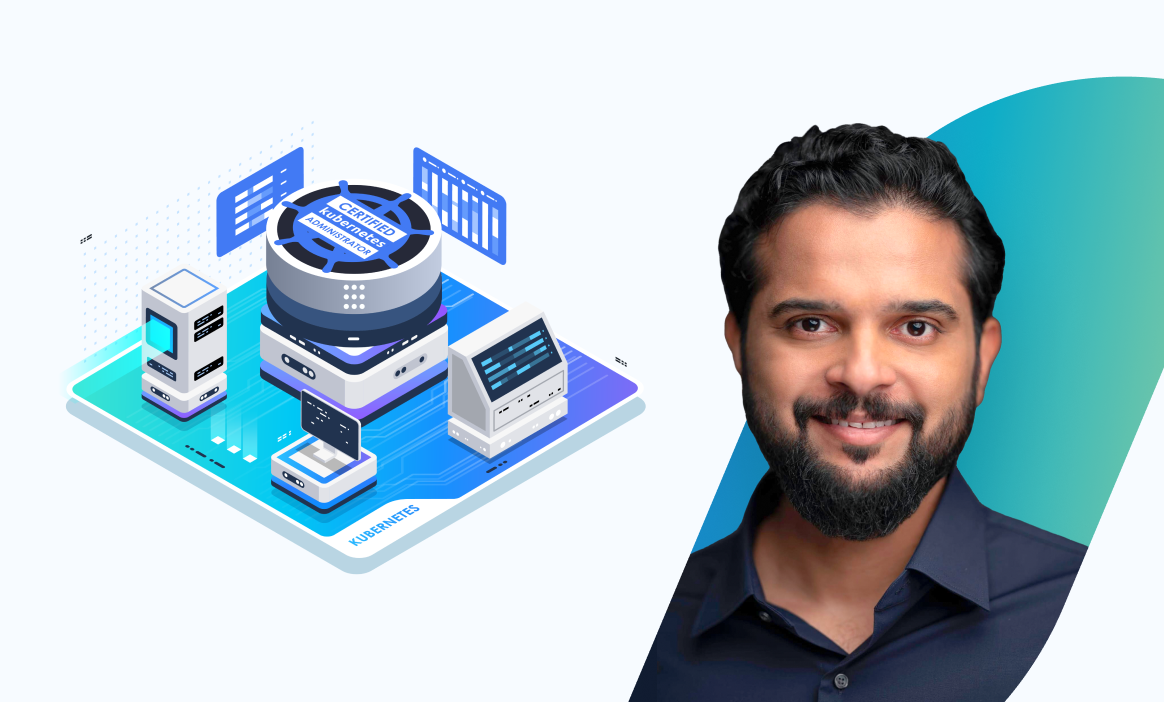
- Certified Kubernetes Application Developer (CKAD)
Tailored for developers building cloud-native applications. Also updated to Kubernetes v1.33, the exam validates skills in creating and managing Kubernetes-native apps with ConfigMaps, Secrets, probes, and Helm.
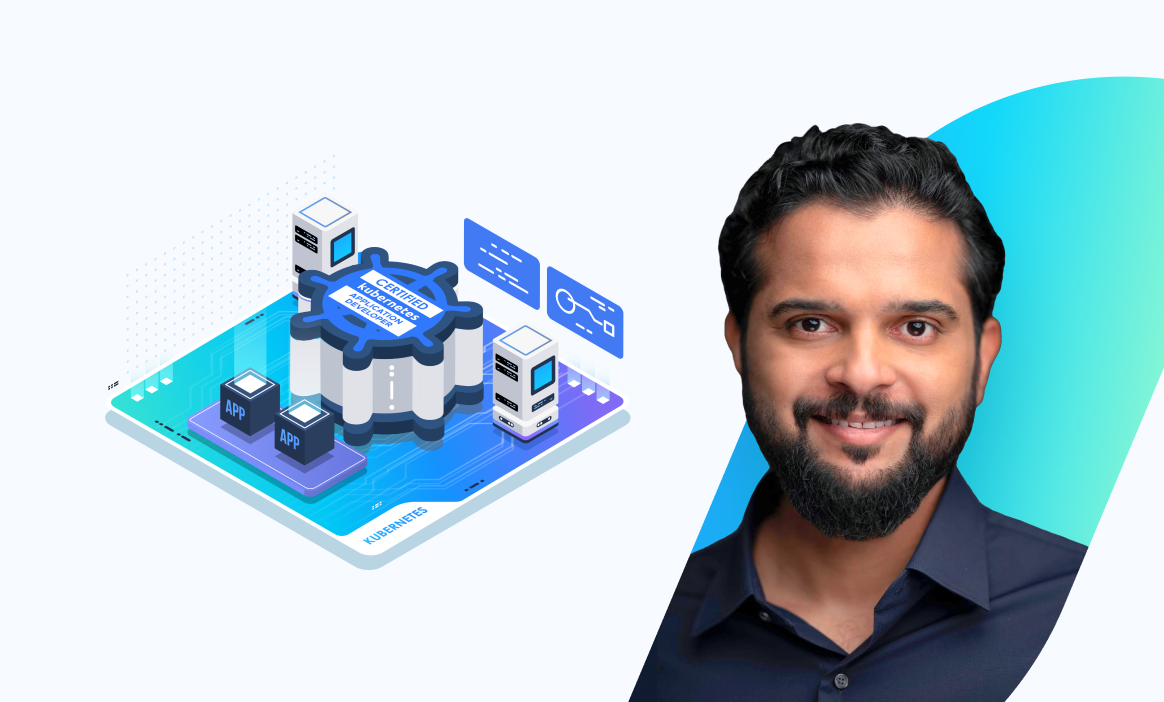
- Certified Kubernetes Security Specialist (CKS)
Focused exclusively on Kubernetes security. To sit for it, you must already hold the CKA. The exam covers cluster hardening, runtime security, network policies, and supply chain security.
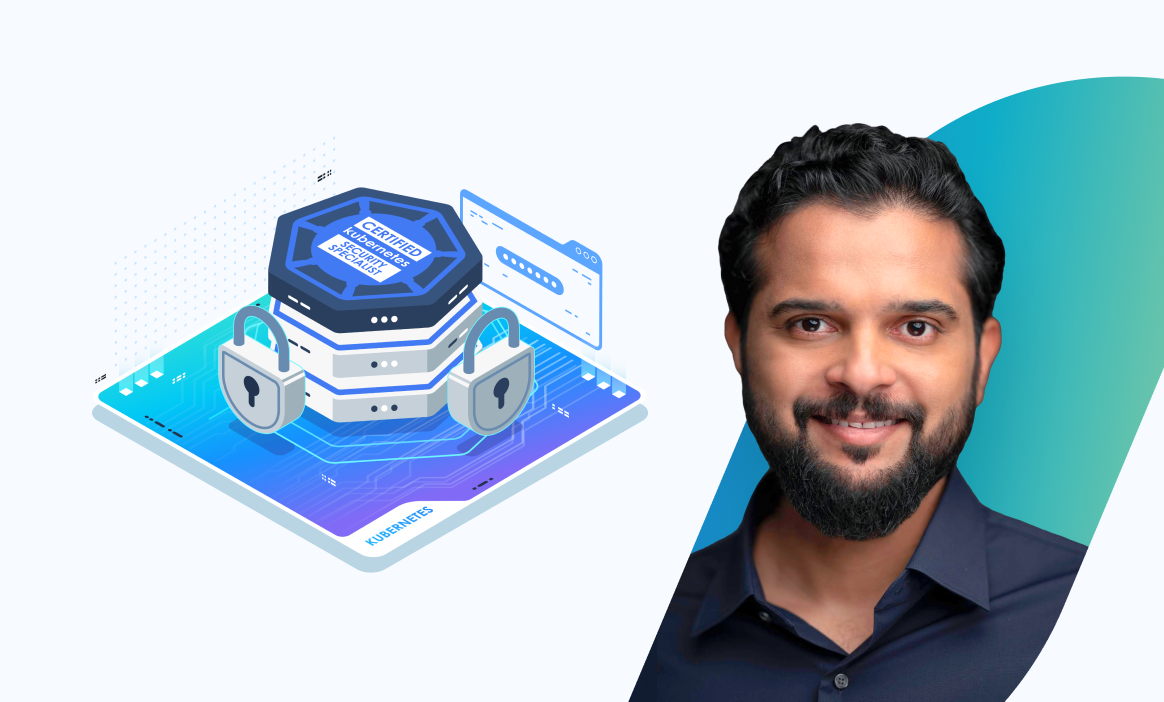
What makes these certifications special is that employers trust them. In fact, if you run a search for “Certified Kubernetes Administrator (CKA)” on LinkedIn Jobs, you’ll find over 3,000 postings globally in early 2025 explicitly requesting CKA or CKS. That kind of direct callout is rare for certifications - evidence that companies see these as genuine markers of skill.
So here’s the takeaway: if you want to prove Kubernetes expertise in 2025, there’s no better way than CKA, CKAD, and CKS. They’re rigorous, they’re recognized, and they immediately separate you from the crowd of candidates who only have “K8s” as a bullet point.
And once you’ve got cloud and Kubernetes under your belt, the next natural question arises: can you automate it all consistently and reproducibly? That’s where Infrastructure as Code certifications come in.
Infrastructure as Code: Terraform as the Lingua Franca
So far, we’ve talked about cloud platforms as the foundation and Kubernetes as the orchestration layer. But here’s the reality: managing those environments manually doesn’t scale. You can’t afford to click through AWS consoles or write ad-hoc shell scripts every time your team needs a new VPC, database, or cluster.
This is where Infrastructure as Code (IaC) enters the DevOps toolkit. IaC transforms infrastructure into version-controlled, reusable definitions. It ensures that what you build is consistent, reproducible, and auditable - three qualities no serious organization in 2025 can do without.
And when it comes to IaC, there’s one clear leader: Terraform.
The HashiCorp Certified: Terraform Associate (003) remains the go-to certification for DevOps engineers proving IaC skills. It validates everything from writing and reusing modules to managing state, planning changes, and provisioning across multiple clouds. For beginners, it’s approachable; for professionals, it signals real automation capability.
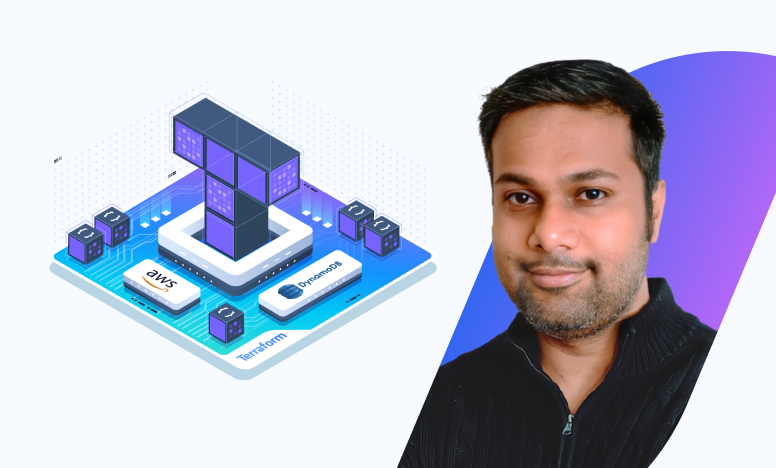
The proof of its dominance is in the job market. On Indeed, as of 2025, there are 15,000+ DevOps job postings in the U.S. alone mentioning Terraform. LinkedIn tells the same story: searches for “Terraform” return thousands of platform engineer, SRE, and DevOps roles worldwide. Employers aren’t just looking for people who “know AWS” anymore - they want those who can codify AWS (or Azure or GCP) with Terraform.
Of course, Terraform isn’t the only IaC player. Pulumi has been steadily gaining adoption, particularly among developer-centric teams. Pulumi even launched its own certification program to validate skills in provisioning infrastructure with familiar programming languages like TypeScript and Python. Still, adoption numbers show Pulumi is a niche tool compared to Terraform, which has become the lingua franca of infrastructure automation.

Here’s the nuance: recruiters and hiring managers don’t usually look at IaC certs in isolation. What they want to see is the bundle: cloud expertise + Terraform automation. Together, these tell a story of someone who not only understands AWS, Azure, or GCP, but can also provision, scale, and manage it reliably using IaC.
That’s why, in 2025, it remains one of the smartest certifications you can add to your DevOps career toolkit.
And naturally, once infrastructure is automated, the next question becomes: how do you deliver software into that infrastructure quickly, safely, and continuously? That’s the domain of CI/CD certifications.
CI/CD: From Jenkins to GitHub Actions and GitLab Pipelines
By now, we’ve laid down the foundations of modern DevOps: cloud as the base, Kubernetes for orchestration, and Terraform for infrastructure automation. But even with those in place, your system isn’t delivering value yet. What matters most to businesses is how quickly and safely code can move from developer laptops to production environments.
This is where Continuous Integration and Continuous Delivery (CI/CD) comes in - the beating heart of DevOps. CI/CD pipelines determine how often you can release features, how fast you can respond to bugs, and how much confidence you have that deployments won’t take down production.
For years, Jenkins was the undisputed king of CI/CD. But by 2025, its dominance has faded. Jenkins remains widely used, but it’s increasingly seen as “legacy DevOps plumbing.”. This was a clear signal to the market that certifications tied to Jenkins wouldn’t carry weight going forward.

In its place, GitHub and GitLab have emerged as the new certification leaders. And it makes sense. These platforms are where developers already live every day, and their pipeline engines - GitHub Actions and GitLab CI/CD - are tightly integrated into the workflows teams use to build, test, and deploy software.
- GitHub Certifications:
GitHub now offers certifications covering Foundations, GitHub Actions, Advanced Security, and Administration. For DevOps engineers, the GitHub Actions certification stands out as a direct proof of pipeline automation skills. It’s increasingly common to see job postings that specifically reference GitHub Actions expertise as a preferred qualification.

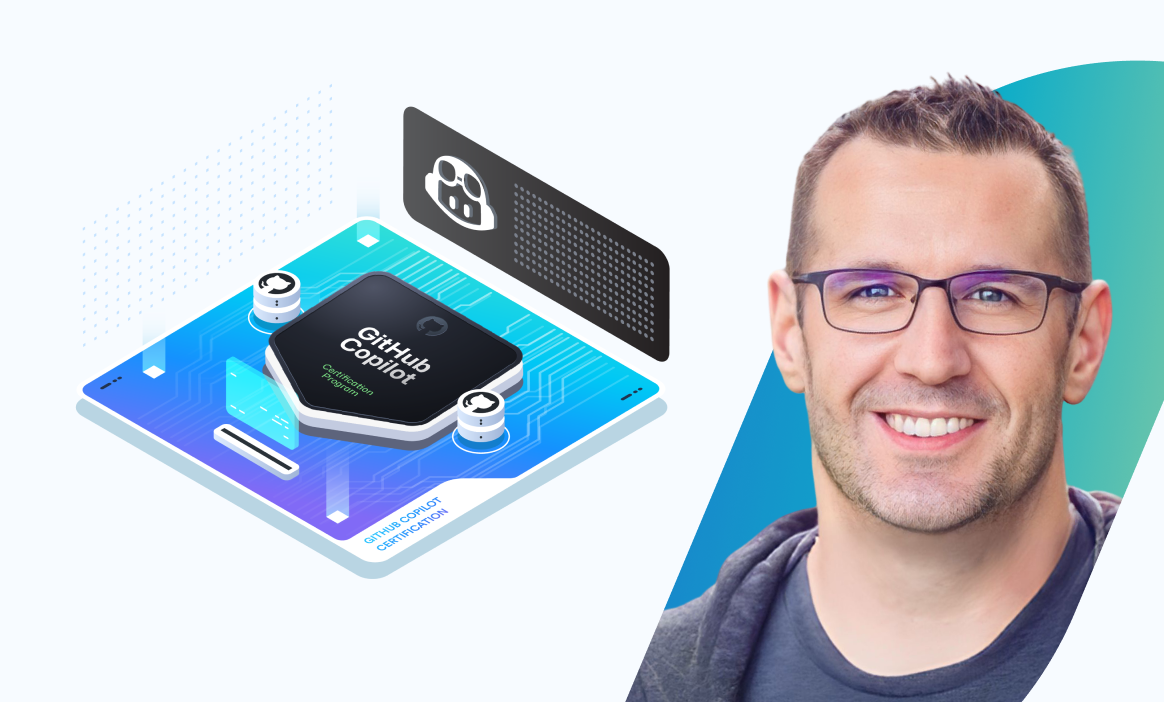
- GitLab Certifications:
GitLab’s certification program includes the GitLab Certified Associate and more specialized tracks around CI/CD and DevOps toolchain management. GitLab remains particularly strong in organizations that value integrated DevOps platforms over tool sprawl.
What makes these certifications matter in 2025 is not just the logos - it’s their proximity to daily developer workflows. If cloud certifications prove you can provision infrastructure, and Terraform proves you can automate it, then GitHub and GitLab certifications prove you can connect development and operations into a seamless delivery pipeline. And in the end, that’s the essence of DevOps.
Of course, all of this infrastructure, orchestration, and delivery rests on one bedrock skill that hasn’t changed in decades: Linux.
Linux: The Silent Backbone of DevOps
So far, we’ve explored clouds, Kubernetes, Terraform, and CI/CD pipelines - the shiny technologies that dominate DevOps job descriptions in 2025. But beneath all those layers, there’s a quieter, older, and arguably more important foundation: Linux.
Every container you orchestrate with Kubernetes runs on a Linux kernel. Every EC2 instance in AWS, every GCP VM, every Azure container host - it’s all Linux under the hood. Even the GitHub Actions runners and GitLab jobs that push your code into production? They’re usually executing on Linux systems.
In DevOps, Linux isn’t optional - it’s invisible glue.
Yet here’s the irony: many candidates underestimate it. They think Linux is “basic,” something you can pick up on the fly. But employers know better.
Hardening a cloud VM means configuring firewalls, SELinux, and permissions - again, Linux skills.
That’s why Linux certifications still carry weight in 2025. They prove you can do more than run a few commands; they show you can manage, secure, and troubleshoot Linux systems at scale.
The main certifications worth your time today are:
- Linux Foundation Certified System Administrator (LFCS): A vendor-neutral, hands-on exam that validates your ability to manage users, processes, services, and storage on Linux. It’s an excellent starting point for DevOps newcomers.
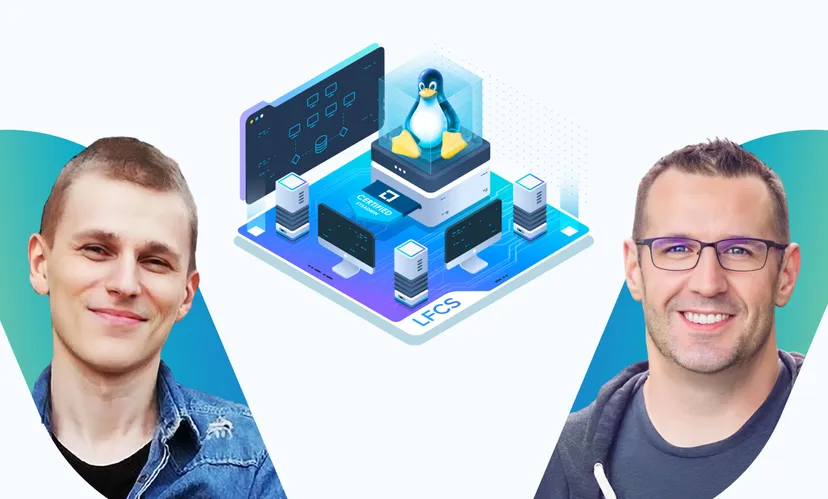
- Red Hat Certified System Administrator (RHCSA): Enterprise-focused and widely respected, this certification proves you can configure and manage Red Hat Enterprise Linux environments.
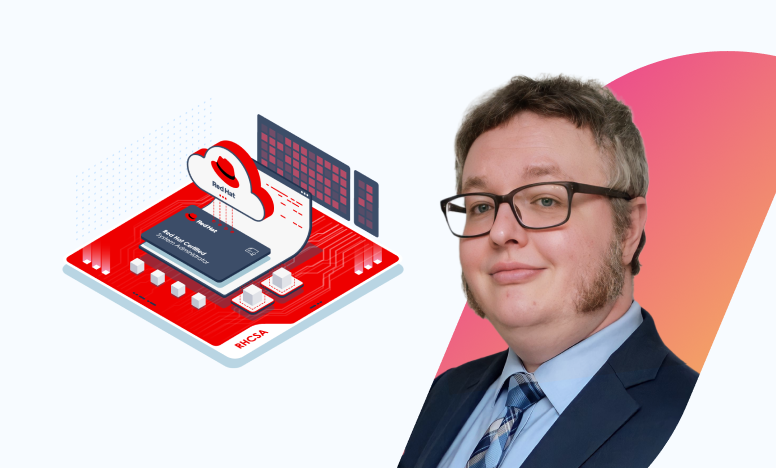
- Red Hat Certified Engineer (RHCE): A step beyond RHCSA, targeting automation (with Ansible) and advanced system administration. For organizations running RHEL at scale, RHCE remains one of the most trusted signals of Linux mastery.
And the demand is still high. On LinkedIn Jobs, a search for “Linux Administrator” in 2025 returns 1000+ postings worldwide where Linux fluency is essential.
So while cloud, Kubernetes, and CI/CD certs might look flashier on a résumé, Linux remains the silent constant. It’s the skill that makes all the others possible. And in interviews, it’s often the difference between someone who can talk about DevOps tools and someone who can actually troubleshoot them in production.
Which brings us to the next maturity layer of DevOps in 2025: once you know how to build and automate systems, the question becomes - can you secure them, keep them reliable, and manage costs at scale?
That’s the domain of security, reliability, and FinOps certifications.
The Maturity Layer: Security, Reliability, and Cost
By the time you’ve mastered cloud, Kubernetes, IaC, CI/CD, and Linux, you’ve built a powerful toolkit. But in 2025, DevOps maturity isn’t measured by how quickly you can stand up infrastructure - it’s measured by whether you can keep it secure, reliable, and cost-effective.
This is the new frontier of DevOps. Businesses no longer just ask “can you deploy fast?” They ask:
- Can you deploy fast and safe (security)?
- Can you deploy fast and stable (reliability)?
- Can you deploy fast and within budget (cost control)?
Certifications have evolved to validate exactly these capabilities.
Security: Proving You Can Ship Safely
Security is no longer a separate team’s concern - it’s embedded into DevOps itself. The rise of DevSecOps means engineers are expected to harden infrastructure, enforce least privilege, and manage compliance without slowing delivery.
Three certifications stand out in 2025:
- Certified Kubernetes Security Specialist (CKS): Builds on the CKA, focusing on cluster hardening, network policies, pod security, supply chain protection, and runtime defense. This is the go-to credential for proving security in cloud-native environments.
- AWS Certified Security - Specialty: Validates your ability to secure AWS workloads through encryption, IAM, monitoring, and compliance controls. Essential for engineers in AWS-heavy organizations.
- Microsoft Cybersecurity Architect Expert (SC-100): Targets hybrid and multi-cloud environments, focusing on designing end-to-end defense strategies across Azure and beyond. Particularly relevant for enterprises with complex governance requirements.
These certifications matter because security is one of the top concerns for CIOs and CTOs in 2025. Proof? In Gartner’s 2024 CIO survey, cybersecurity was ranked as the #1 priority for IT investments worldwide.
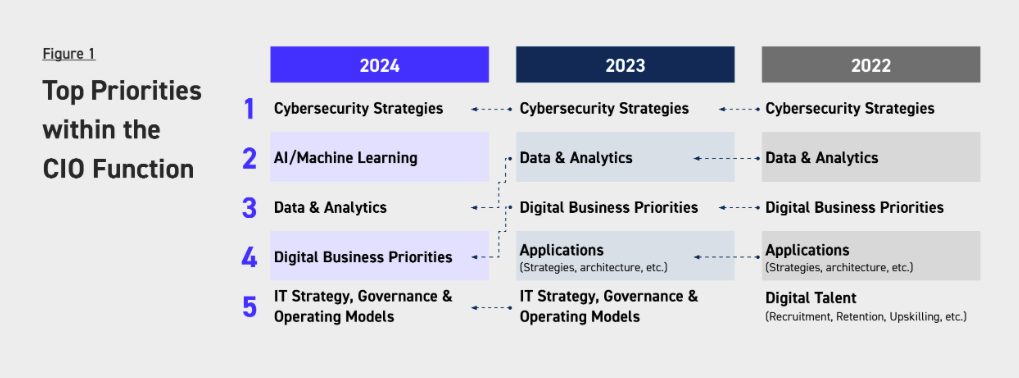
Reliability: From DevOps to SRE
The second pillar of maturity is reliability. Delivering quickly is worthless if systems constantly fail under load. That’s why Site Reliability Engineering (SRE) principles - SLIs, SLOs, error budgets - have merged with DevOps practice.
Here, Google leads the way with the Google Professional Cloud DevOps Engineer certification. Unlike many cloud exams, this one explicitly tests reliability: monitoring, alerting, incident response, and continuous improvement. It’s effectively a hybrid DevOps + SRE certification, which makes it highly respected among employers.
Cost Optimization: Enter FinOps
The third maturity layer is financial. Cloud costs have spiraled in recent years, and organizations now expect DevOps engineers to balance speed with spend. This has given rise to FinOps, a cultural and technical practice for managing cloud financials.
The FinOps Certified Practitioner (FOCP) has exploded in relevance. It validates that you understand cloud billing, tagging strategies, budgeting, and how to optimize costs without slowing delivery.
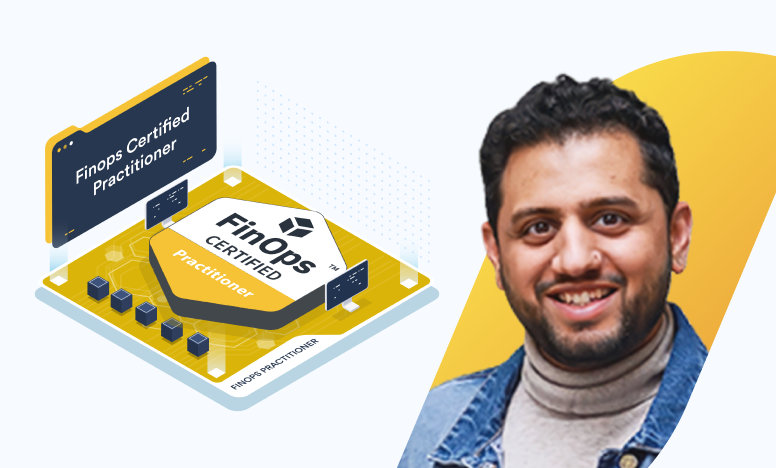
And the demand is tangible. A LinkedIn search for “FinOps” in early 2025 returns thousands of referencing cost optimization as a required skill, with many explicitly preferring FOCP-certified candidates.
Why This Layer Matters
Put simply: cloud + Kubernetes + automation + delivery + Linux is the toolkit. But security + reliability + cost optimization is the leadership layer.
This is the difference between being “a DevOps engineer who can build things” and being “a platform engineer or SRE who can lead teams and design resilient, scalable, and efficient systems.”
And in the eyes of employers, certifications in this maturity layer are often what justify senior-level salaries.
Which brings us to another capability that has quietly moved from “nice-to-have” to “non-negotiable” in DevOps: observability.
Observability: From Luxury to Necessity
Once you’ve secured systems, made them reliable, and kept costs under control, there’s still a critical question left: can you actually see what’s happening inside them?
In the early days of DevOps, monitoring was often treated as an afterthought. Teams bolted on tools to watch CPU usage or disk space, but observability - the ability to ask any question about your system’s state without predefining it - was seen as a luxury. Fast forward to 2025, and it’s become a survival requirement.
Why? Because modern architectures are sprawling. A single enterprise application might involve hundreds of microservices, multiple Kubernetes clusters, and workloads spread across AWS, Azure, and GCP. Without deep observability, incidents turn into guessing games, outages drag on for hours, and customer trust evaporates.
This shift is reflected in the job market. On LinkedIn Jobs, as of early 2025, thousands of postings for DevOps Engineerand Site Reliability Engineer (SRE) explicitly mention observability stacks - Grafana, Prometheus, Loki, Tempo, Jaeger - as required or preferred skills.
Naturally, certifications have followed. The most relevant today are:
- Grafana Certifications: While Grafana remains the most widely adopted observability platform in cloud-native environments, official certifications are still in development. According to Grafana Labs, learners can earn GROT Academy badges each quarter in 2026, which showcase progress and applied skills. However, the first official Grafana certifications (covering Grafana Observability, Loki for logs, and Tempo for tracing) are planned for release in 2026. Until then, badges serve as the stepping stone, and employers increasingly recognize them as indicators of real-world monitoring and visualization expertise.

- Prometheus (via CNCF/Linux Foundation Training): While not branded as a standalone certification, CNCF/Linux Foundation-backed Prometheus training, assessment, and certification tracks remain highly respected, especially for engineers working on Kubernetes-heavy monitoring.
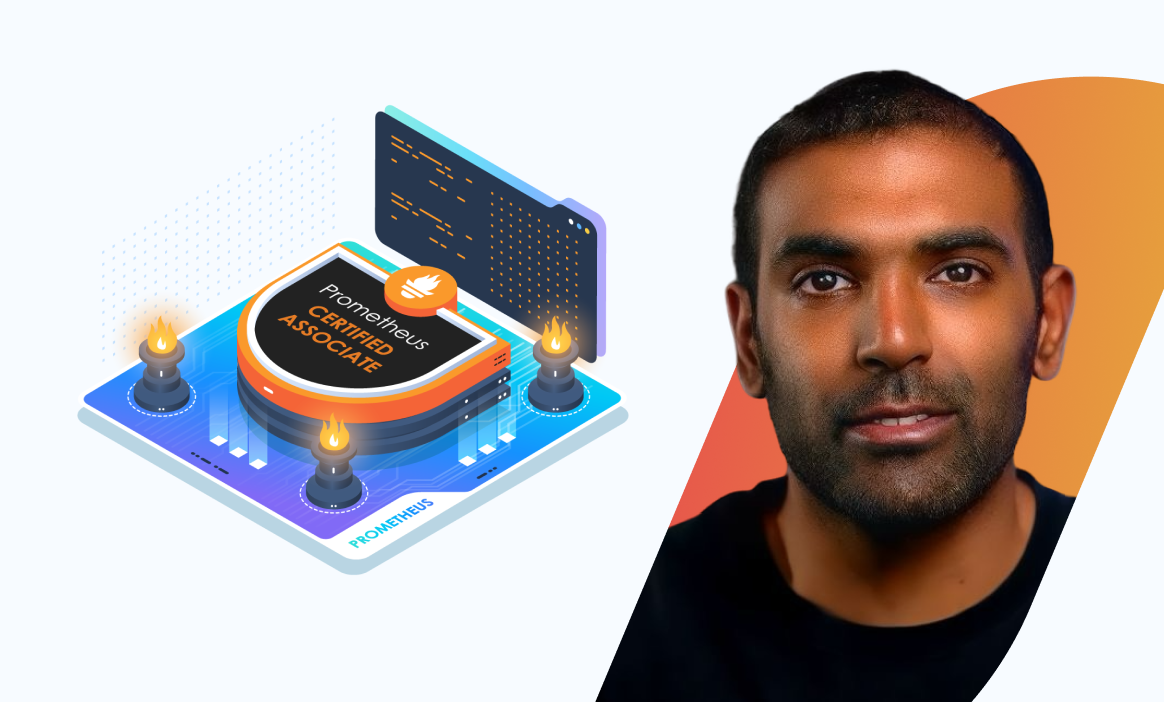
The value of these certifications isn’t just technical - it’s cultural. In DevOps interviews, employers increasingly ask not only “Can you deploy fast?” but also “How would you detect if something broke, and how quickly could you recover?”Certifications in observability demonstrate that you don’t just build pipelines blindly - you can see, measure, and improve them.
And when combined with security, reliability, and FinOps, observability forms the final piece of the DevOps maturity puzzle. At this point, your résumé doesn’t just tell a story of “building things” - it tells a story of building things that are safe, stable, efficient, and transparent.
That’s why the next section focuses on strategic roadmaps: how to align certifications with your career goals instead of collecting them at random.
Strategic Roadmaps: Picking the Right Path
By now, we’ve covered nearly every certification that matters in 2025: from cloud foundations to Kubernetes mastery, IaC automation, CI/CD, Linux, and the advanced maturity layers of security, reliability, FinOps, and observability. But here’s the truth: you don’t need all of them.
Think about it from the perspective of a hiring manager. When they scan your résumé, they’re not impressed by a scattered list of certs. What they want to see is progression: “This person started with the basics, leveled up into orchestration and automation, and now has the maturity to secure and optimize systems at scale.” That’s what tells them you’re ready for bigger responsibilities.
So, how do you build that story? The answer is a strategic certification roadmap. Let’s break down a few practical journeys for 2025.
Roadmap 1: Beginners Entering DevOps
If you’re just starting out - maybe you’re a sysadmin, junior developer, or IT support engineer - your first goal is to establish foundations.
A natural path looks like this:
- Cloud Associate Certification (AWS Solutions Architect Associate, Azure Administrator, or GCP Associate Cloud Engineer) → proves you can deploy workloads in the cloud.
- Kubernetes and Cloud Native Associate (KCNA) → introduces containers, Kubernetes, and observability basics.
- HashiCorp Terraform Associate (003) → shows you can automate infrastructure rather than managing it manually.
- GitHub Actions Certification (or GitLab Certified Associate) → validates CI/CD fundamentals.
By the time you’ve completed this path, you’re not just “a beginner with theory.” You’re someone who can spin up cloud infrastructure, deploy workloads, automate provisioning, and set up pipelines. That’s enough to land an entry-level DevOps engineer role in 2025.
Roadmap 2: Sysadmin to SRE/Platform Engineer
If you come from a system administration background, your strength is already in Linux and operations. Your roadmap should build on that and push you into orchestration, automation, and reliability:
- Linux Certification (LFCS or RHCSA) → proves mastery of the backbone.
- Certified Kubernetes Administrator (CKA) → hands-on validation of cluster management.
- Certified Kubernetes Security Specialist (CKS) → deepens credibility in security, which is now expected for senior roles.
- Cloud Professional/Expert Certification (AWS DevOps Engineer Pro, Azure DevOps Engineer Expert, or Google Professional Cloud DevOps Engineer) → shows you can scale in enterprise environments.
- Grafana Observability Certification or FinOps Certified Practitioner (FOCP) → adds maturity in monitoring or cost management.
This roadmap positions you for SRE or platform engineer roles - high-demand positions that blend automation, reliability, and leadership.
Roadmap 3: Developer to DevOps Engineer
For developers transitioning into DevOps, the story should highlight how you can not only write code but also run it at scale. That means leaning into Kubernetes app development and CI/CD:
- CKAD (Certified Kubernetes Application Developer) → directly aligns with developer skills.
- GitHub Actions or GitLab Certification → bridges code with delivery pipelines.
- Cloud Associate → Terraform Associate → ensures you can deploy infrastructure as code.
- CKA or Cloud Professional Cert → shows growth from “developer” to “engineer of systems.”
By the end of this path, you’re no longer “just a developer.” You’re someone who can own the lifecycle from code to production, which is exactly what employers want from DevOps engineers in 2025.
Why Roadmaps Work
The power of these roadmaps is that they create a narrative arc. Instead of looking like a random collection of skills, your certifications tell a story of progression and depth. That story is what convinces hiring managers you’re not just learning for the sake of learning - you’re preparing for the role they need filled.
And here’s the important part: certification journeys don’t end. Once you’ve built one path, you can pivot into another layer - security, reliability, FinOps, observability - depending on where your career takes you. Certifications become chapters in a longer book, not isolated pages.
Which brings us to the final section of this guide: a reflection on what certifications can - and can’t - do for your career in DevOps.
Final Word: Proof That Matters
Let’s circle back to the interview room we imagined at the start of this guide. It’s 2025, and you’re sitting across from a hiring manager for a senior DevOps engineer role. They’ve asked you about AWS, Kubernetes, Terraform, CI/CD, Linux, security, observability - and you’ve confidently explained your experience with all of them.
But here’s the truth: in a competitive job market, experience alone isn’t always enough. Recruiters skim résumés in seconds. Hiring managers don’t have time to parse every GitHub repo you’ve ever contributed to. What they need is proof - clear, external validation that you can operate at the level they require.
That’s where certifications come in. Not as magic tickets to employment, and certainly not as a substitute for hands-on skill, but as trust signals in a trust-deficient market.
And in 2025, the trust signals that matter most are clear:
- Cloud certifications (AWS, Azure, GCP) → the foundation every DevOps engineer needs.
- Kubernetes certifications (CKA, CKAD, CKS, KCNA) → the practical proof that you can orchestrate and secure workloads.
- Infrastructure as Code certifications (Terraform Associate) → the validation of automation and reproducibility.
- CI/CD certifications (GitHub, GitLab) → evidence that you can connect code to production safely.
- Linux certifications (LFCS, RHCSA, RHCE) → the bedrock skill every system still runs on.
- Maturity layer certifications (Security, Reliability, FinOps, Observability) → the differentiators that elevate you from engineer to leader.
The data backs this up. The Pearson VUE 2025 Value of IT Certification report found that 92% of certified professionals feel more confident in their abilities, and 81% report increased job opportunities post-certification. Meanwhile, job platforms like LinkedIn and Indeed consistently show thousands of postings explicitly asking for certifications like CKA, AWS DevOps Engineer Professional, or FOCP. The market isn’t just rewarding skills - it’s rewarding proven skills.
But here’s the nuance: certifications alone won’t make you a great DevOps engineer. They’re accelerators, not replacements. What will make you stand out in 2025 is the combination of:
- Hands-on skill (through labs, projects, real systems).
- Certifications that validate those skills.
- A coherent roadmap that tells a career story rather than a scatter of badges.
Get those three right, and certifications stop being just logos on your LinkedIn profile. They become career multipliers.
In a world where organizations demand speed, security, reliability, and efficiency all at once, the right DevOps certifications in 2025 are more than just credentials. They’re proof that you can rise to the challenge - and keep rising as the field evolves.
So, if you’re planning your career journey this year, ask yourself: What story do I want my certifications to tell? Because in 2025, the candidates who answer that question clearly are the ones who will turn interviews into offers, and offers into leadership roles.
FAQ
Do I need every certification to succeed in DevOps?
Not at all. The goal isn’t to collect badges - it’s to build a coherent learning journey. Pick certifications that align with your career path, whether that’s cloud engineering, SRE, platform engineering, or DevSecOps.
How should I decide between AWS, Azure, and Google Cloud certifications?
Choose the provider that matches your target industry or employer. AWS dominates startups and global enterprises, Azure is strong in regulated industries and Microsoft-heavy shops, and Google Cloud shines in data and SRE-focused environments.
Should I take Kubernetes certifications if my company doesn’t use Kubernetes yet?
Yes - because Kubernetes isn’t just a tool, it’s the standard for container orchestration. Even if your current employer hasn’t adopted it, knowing Kubernetes makes you more portable across companies.
Is it worth starting with KCNA before CKA or CKAD?
KCNA is a great beginner-friendly on-ramp, but it’s optional. If you already have real Kubernetes exposure, you can skip KCNA and go straight to CKA or CKAD.
What role does Terraform certification play compared to cloud certs?
Cloud certs show you understand AWS, Azure, or GCP. Terraform proves you can automate and manage them reproducibly. Together, they’re much stronger than either alone.
Should I still learn Jenkins in 2025?
Learning Jenkins can help with legacy systems, but don’t invest in certifications. For new roles, focus on GitHub Actions or GitLab CI/CD, since they’re integrated into modern developer workflows.
Are Linux certifications necessary if I already use Linux daily?
If you’re confident, you might not need one. But Linux certifications like LFCS or RHCSA provide formal proof of your skills and often make your résumé stand out in roles where troubleshooting at the OS level is critical.
How do FinOps and Observability certifications fit into DevOps careers?
They come later in your journey. Start with cloud, Kubernetes, and IaC first. Then, as you move into senior or platform roles, layer in FinOps (for cost management) and Observability (for monitoring and tracing) to show maturity.
How do I avoid getting lost in certification choices?
Follow a roadmap. For example:
- Beginner → Cloud Associate → Terraform → GitHub Actions.
- Sysadmin → Linux → CKA → CKS → Cloud Professional.
- Developer → CKAD → GitLab/GitHub → Terraform → Cloud Professional.
Do certifications replace hands-on projects?
No. Certifications are signals, not substitutes. Pair them with real-world projects, open-source contributions, or lab work to prove you can apply what you’ve learned.



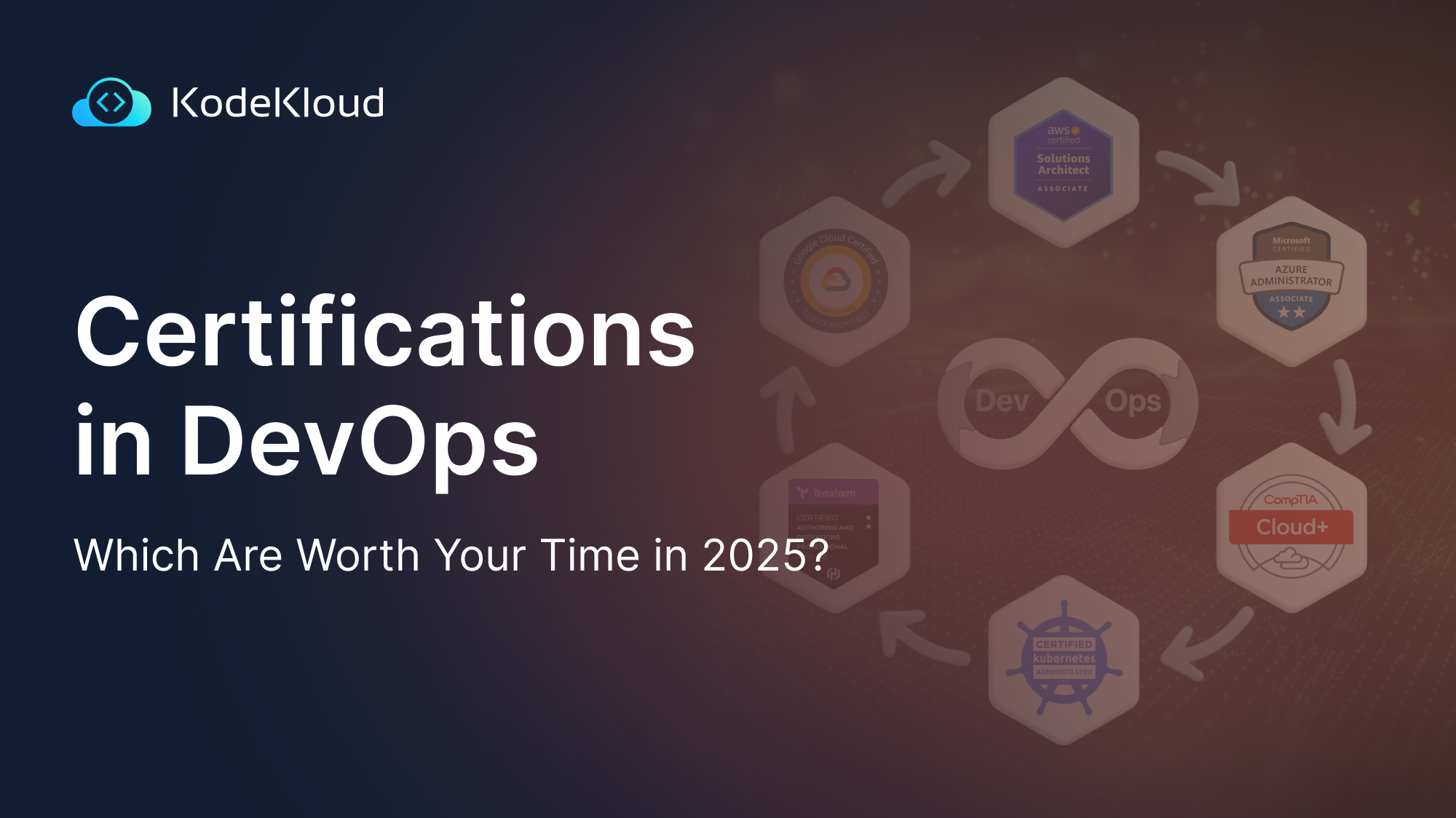

















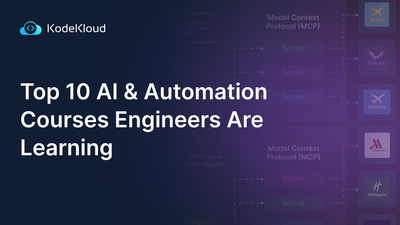
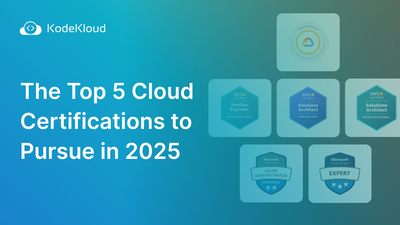
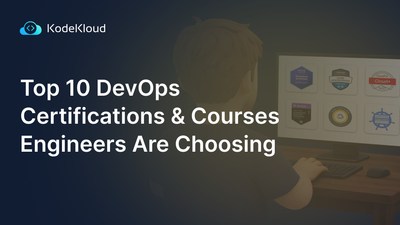

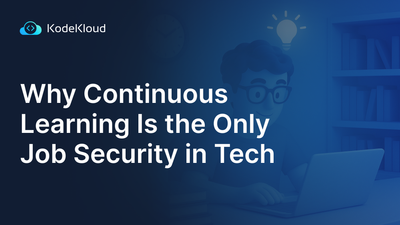

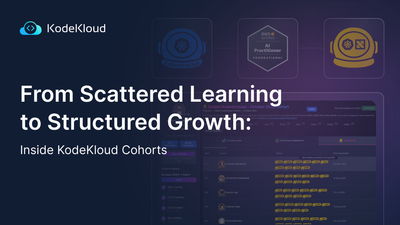
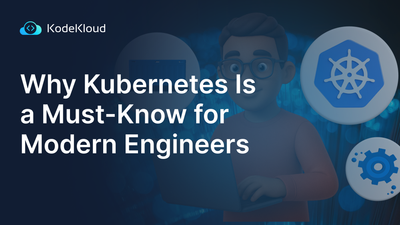

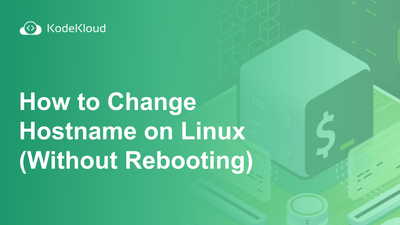

Discussion